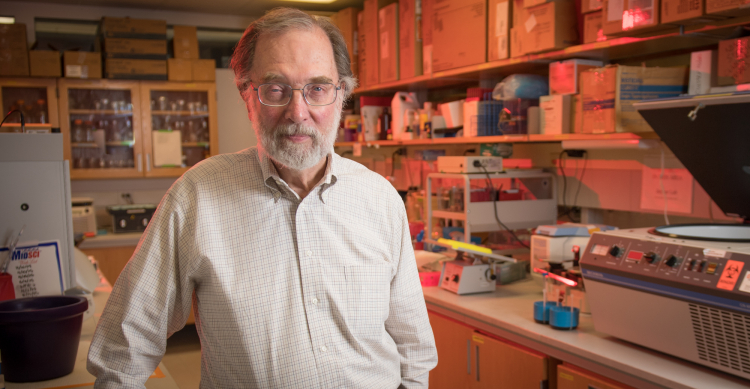Dr. William Busse to receive Lifetime Contribution Award from the American Academy of Allergy, Asthma and Immunology (AAAAI)

Former Department of Medicine chair, long-time faculty member in the Division of Allergy, Pulmonary and Critical Care, and nationally recognized leader in asthma and allergy research, William Busse, MD, is set to receive the American Academy of Allergy, Asthma and Immunology (AAAAI) Lifetime Contribution to the AAAAI and A/I Specialty Award in 2024.
Dr. Busse is being recognized for his excellence in leadership, service, research, clinical care and mentorship, along with more than 50 years of contributing to the AAAAI. He has served not only president but the leader of numerous committees and divisions. Dr. Busse also helped establish the AAAAI Foundation’s commitment to fund research of junior investigators at critical, early stages in their careers. As a result, to date the AAAAI Foundation has given more than ten million dollars in funding.
Dr. Busse joined the Department of Medicine in 1974 after completing his undergraduate degree, medical degree, internal medicine residency and research fellowship in allergy and clinical immunology all at the University of Wisconsin–Madison.
He held numerous leadership roles in the department, including head of what was then the Section of Allergy and Clinical Immunology, vice chair for research, and the George R. and Elaine Love Professor and Chair of Medicine.
Dr. Busse’s remarkable 47-year research career is exemplified by continuous National Institutes of Health (NIH)-funded grant support. From his early role as a co-investigator on the now 50-year Asthma and Allergic Disease Center, Dr. Busse led, as principal investigator, multi-investigator programs as the Specialized Center of Research (SCORs), the Severe Asthma Research Program (SARP) and the landmark Inner-City Asthma Consortium (ICAC). Research in these programs centered on key mechanistic aspects of asthma including eosinophilic airway inflammation, rhinovirus provoked exacerbations, and altered brain health and loss of cognition. He has always believed that a collaboration of investigative teams has been key to their successes.
“In our approach to research, we patterned our efforts towards team science before team science was in vogue,” he reflects. “This multi-pronged approach leveraged local expertise, expanded the scope of our efforts, and introduced asthma research to more investigators.”
Dr. Busse and his collaborators were also among the earliest in their field to conduct translational research. They primarily conducted their research studies in patients with asthma, which provided a more direct link to disease mechanisms and potentially to improved clinical understanding and care. As noted by Dr. Busse, an essential component to the overall success of these research programs has been encouragement, support, and involvement of colleagues, the Department of Medicine and the UW School of Medicine and Public Health.
Banner: File photo of Dr. Busse in the lab. Credit: Clint Thayer/Department of Medicine